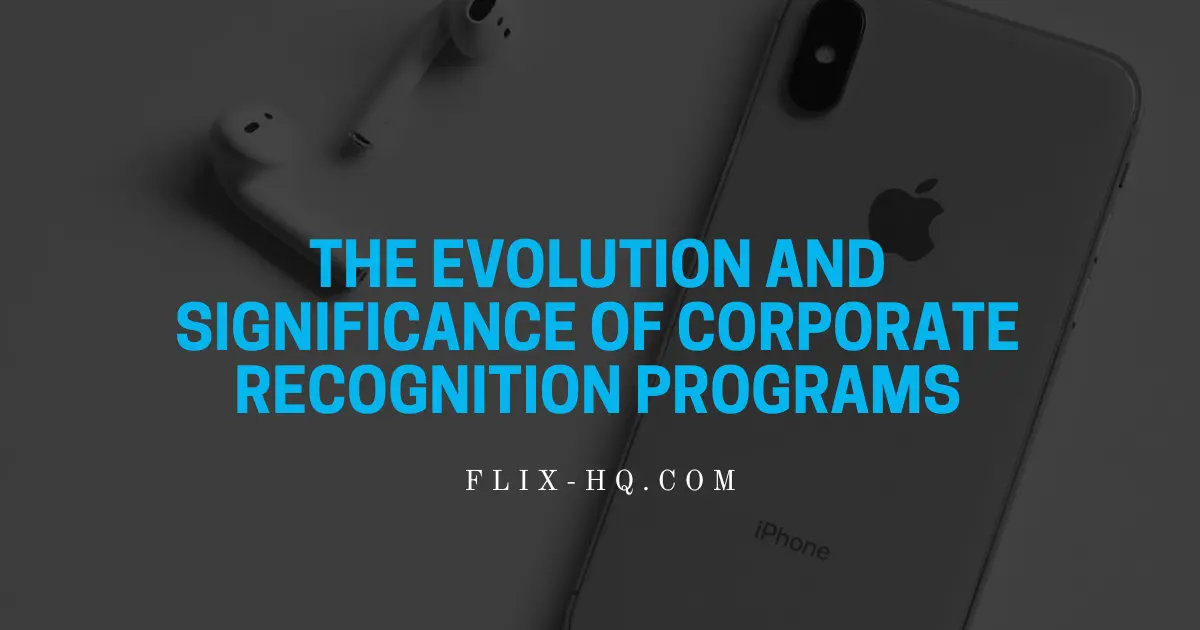Corporate recognition programs have evolved significantly, becoming a cornerstone in fostering a positive work environment. Recognition programs are no longer just about handing out plaques and trophies; they are comprehensive systems designed to acknowledge and reward employee contributions in meaningful ways.
In the competitive corporate landscape, a well-structured recognition program can differentiate between a thriving organization and one that struggles with employee turnover and disengagement. Companies can enhance their work atmosphere by ensuring that employees feel valued and appreciated, creating a more cohesive and motivated workforce. As we delve into the various aspects of these programs, it becomes clear why they are essential for modern businesses striving to maintain a competitive edge in their industries.
Types of Corporate Awards
Service Awards
Service awards are designed to celebrate work anniversaries and long-term commitments. These awards are crucial for recognizing the loyalty and dedication of employees who have spent significant time contributing to the company’s success. Today, companies increasingly understand the value of appreciation awards as a strategic tool to boost employee morale and retention. Companies often mark milestones such as 5, 10, or 20 years of service, acknowledging the unwavering contributions of such dedicated employees. These kinds of awards foster a sense of belonging and continuity, reinforcing the mutual relationship between the employee and the organization.
Performance Awards
Performance awards highlight exceptional performance and achievements. Whether it’s surpassing sales targets, delivering outstanding project results, or showing excellent customer service, these awards motivate employees to strive for excellence. Performance awards are typically based on quantifiable metrics, ensuring fair and well-deserved recognition. This kind of recognition drives individual growth and sets a benchmark for other employees, encouraging a culture of high performance within the organization.
Peer-to-Peer Awards
Peer-to-peer awards foster a sense of camaraderie and teamwork within the organization. Allowing employees to nominate their colleagues for recognition ensures that contributions at all levels are acknowledged. This type of recognition is essential because it highlights the collaborative efforts that often go unnoticed by management. Peer-to-peer awards can build a more inclusive and collaborative work environment where employees feel seen and appreciated by their colleagues, not just their supervisors.
Innovation Awards
Innovation awards are designed to reward employees who bring creative and forward-thinking ideas. This form of recognition motivates individuals and drives the company’s overall growth and innovation. Recognizing innovation is crucial in today’s fast-paced business environment, where new ideas and creative solutions are essential for staying ahead of the competition. By encouraging and rewarding innovation, companies can foster a culture of continuous improvement and adaptability, which is vital for long-term success.
Importance of Employee Recognition
Employee recognition plays a pivotal role in boosting morale and productivity. Employees who feel valued are more likely to be engaged and committed to their work. Recognition also reduces turnover rates, saving companies significant costs for hiring and training new employees. Studies have shown that organizations with a strong recognition culture have markedly lower turnover, as employees are less likely to leave when they feel acknowledged and appreciated for their work.
According to the Society for Human Resource Management, employee recognition leads to higher levels of job satisfaction, enhancing overall company performance. This positive feedback loop means that recognition not only improves individual performance but also contributes to the organization’s overall success by creating a more engaged and productive workforce.
Integrating Recognition Programs into Corporate Culture
To fully reap the benefits of recognition programs, it’s essential to integrate them into the corporate culture. This involves setting up a system where recognizing excellent work becomes a regular practice rather than an occasional event. Consistency is key, as sporadic or uneven recognition can lead to feelings of favoritism or neglect among employees. Organizations should aim to create a seamless integration where recognition is a natural and expected part of the organizational ethos.
Leadership is extremely important in promoting a culture of appreciation. Leaders have the power to establish the atmosphere for the whole organization through actively engaging in and advocating for recognition programs. When leaders model the behavior they wish to see, others follow suit, creating a culture where recognition is widespread and consistent. Additionally, maintaining clear, transparent criteria for recognition helps to ensure that all employees understand what is valued and how they can aspire to be recognized.
Data-Driven Approaches to Recognition
Leveraging data and analytics can significantly enhance the effectiveness of recognition programs. Companies can tailor their recognition efforts to address specific needs and opportunities by identifying key performance indicators and tracking them over time. Data insights can help organizations understand which types of recognition are most impactful and how they can be improved. This approach ensures that recognition programs are strategic and practical, using available resources best to achieve the most significant impact.
Utilizing analytics in employee recognition programs helps measure these initiatives’ impact and make data-driven decisions for continuous improvement. Surveys and feedback are also instrumental in gathering insights and refining recognition strategies. By regularly collecting and analyzing employee feedback, companies can ensure their recognition programs remain relevant and practical, adapting to their workforce’s changing needs and preferences.
Modern Tools for Corporate Awards
The rise of digital platforms has transformed how companies manage their recognition programs. Real-time recognition through apps and software tools has made it easier to acknowledge employee achievements instantly. These platforms offer a range of features, from automated milestone tracking to personalized recognition messages, making it simple to celebrate successes as they happen. This immediacy enhances the impact of recognition and ensures that achievements are celebrated promptly, which is crucial for maintaining motivation.
These tools offer robust features such as automated milestone tracking, personalized recognition messages, and comprehensive reporting capabilities. Companies utilizing these tools can create a more dynamic and responsive recognition environment. Through the use of technology, companies can guarantee that their recognition initiatives are both efficient and scalable, able to assist a wide range of employees. Furthermore, digital tools frequently offer significant data and insights that can be utilized to improve and augment recognition programs even more.
Real-Life Examples of Successful Programs
Many companies have successfully integrated recognition programs into their corporate culture, significantly improving employee satisfaction and performance. For instance, a major tech company implemented a peer-to-peer recognition platform, allowing employees to recognize and reward their colleagues for their contributions instantly. This initiative led to a measurable increase in employee engagement and collaboration, demonstrating the power of peer-to-peer recognition in building a strong, cohesive team.
Another instance is when a large retail company utilized data analytics to pinpoint top achievers and customize their rewards program accordingly. This approach improved morale and drove higher sales and customer satisfaction. By focusing on data-driven insights, the company was able to effectively target its recognition efforts, ensuring that the most impactful contributions were acknowledged and rewarded. These real-life examples highlight how well-designed and thoughtfully implemented recognition programs can significantly improve employee satisfaction and organizational performance.
Conclusion
Corporate recognition programs are more than just a nice-to-have; they are critical to a thriving workplace culture. Businesses can establish a culture that values and inspires employees by recognizing the various types of rewards, the significance of acknowledgment, and the proper implementation of such programs. Leveraging data and modern tools further enhances the impact of these programs, ensuring that recognition efforts are both meaningful and effective.
Ultimately, the success of a corporate recognition program depends on its ability to make employees feel genuinely appreciated and valued for their contributions. By taking a strategic, thoughtful approach to recognition, organizations can foster a positive, high-performing work environment that benefits employees and the company.






